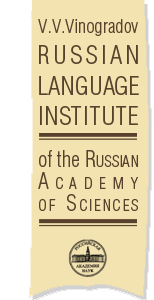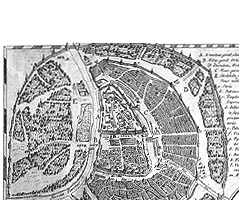 |
|
 |
 |
 |
 |
Electives |
Electives are taught by scholars from academic institutions, such as Institute of Russian Language, Institute of World Literature, the Moscow State University, Institute of USA and Canada, Higher School of Economics, Moscow State University of International Relations, Institute of Sociology and other prominent academic institutions of Moscow
Literature
Russian Literature of the 19th Century.
The Golden Age of the Russian Literature. We will read works by Pushkin, Lermontov, Leskov, Gogol, Chekhov. Course includes visiting museums devoted to the writers we study, and attending performances of plays by Gogol and Chekhov. Course can be conducted in English, readings in Russian.
Russian literature of the 20th Century.
The Silver Age of the Russian literature. This course spans the entire landscape of the Russian literature in 20th century, written by both Soviet and émigré writers. We will read works by such eminent figures as Bulgakov, Platonov, Nabokov, Gorky, N. Ostrovsky, Mandel'shtam, Pasternak, Akhmatova, Dovlatov and Pelevin. Course includes visiting museums devoted to the writers we study, and attending performances of plays based on works of Bulgakov and others. Course can be conducted in English, readings in Russian.
Leo Tolstoy and the Great Russian Novel.
A careful reading of Anna Karenina and War and Peace will serve as the basis for broader discussions of Tolstoy’s approaches to greater philosophical questions, including the nature of time and history, the function of the individual in society, and questions of transcendence and immanence. The professor will also help students understand what is meant by the "Tolstoy tradition" as it appeared in later Russian literature and continues to exert its influence today. Readings and class discussions will be in English with some crucial passages from the texts read and analyzed in Russian.
Dostoevsky, his Thought and Influence on Art in Russia and Abroad
We will read “Notes from the House of the Dead,” “The Idiot,” “The Adolescent”and “Notes from the Underground,” discuss their philosophical underpinnings, the questions of theodicy, the nature of evil, the nature of human beings and deification as humans’ overarching goal in Dostoevsky’s universe. We will discuss some literary and cinematic works which show unmistakable influence of Dostoevsky. Discussions will be conducted both in Russian and in English, readings of large amounts of material can be in English, some chapters will be read in Russian.
"Russian Poetry out of Bounds: Russia and America."
Two great Russian poets of the 20th century, Sergei Esenin and Vladimir Mayakovsky, strove to make their own "discoveries of America." Both came to New York during the 1920s and tried to win over American readers there. Both likewise wrote essays about their experience: Esenin's 1923 "Zheleznyi Mirgorod" and Mayakovsky's "My Discovery of America." While it is true that both works have a strong satirical side (the standard Soviet reading), both are also passionate, intimate, and even troubled accounts of their experiences in a strange country. Esenin traveled around the US with his wife, the famous dancer Isadora Duncan while Mayakovsky fell in love with a Russian émigré Elly Jones, who had a child by him. We will read accounts of their voyages as well as the poetry that came out of these experiences. We will also read American poets from that period and the critical appraisals of Esenin’s and Mayakovsky’s poetry. Readings and discussion will be in Russian and in English.
History
“Stalin and the Russian Revolution.”
The course (which can be taught in both English and Russian with readings in English) explores the history and pre-history of the Stalinist era beginning with the development of the revolutionary movement in Russia in the end of the 19th century and up to the end of Stalin’s reign of terror with in death in 1953 and the subsequent period of “rehabilitation” of Stalin’s times’ victims.
“Stalin and Religion”.
The course explores the complicated and ambivalent relationship that existed between Stalin and Russian Orthodox Church in the 30-s, during World War II and in post-war Russia, the near-destruction and the short resurrection of the Russian Church, the treatment of Church hierarchs by the Soviet Power, and other related issues.
Politics, economy
From the Processes of Perestroika to the Modern Russia: Economics, Politics, Culture. The course explores the recent history of Russia, the most important happenings of the Yeltsin era and the changes brought about during Putin’s presidency.
Yeltsyn’s and Putin’s Russia.
The course explores the situation in the Soviet Union prior to Perestroika and touches upon the following topics: he main characteristics of the Brezhnev’s period of stagnation, the beginning of Gorbachev’s era, the conflict of different models of state reforms and development; glasnost, the processes, goals, and outcome of the Perestroika. It introduces students to the Russian political development following collapse of the Soviet Union in 1991, forming of contemporary Russia, collapse of the Soviet Union in 1991, constitutional crisis of 1993, beginning of the first Chechen war in 1994, devaluation of 1998. It also considers the history of Putin’s rule in Russia
Russia and the Muslim World.
The course explores the followjng topics: Russia and the neighboring countries of the East (Afghanistan, Iran). Government system, religion, history and the contemporary situation in these countries. Russia’s relations with these countries. Russia and the former Muslim republics of the USSR (Uzbekistan, Tadjikistan, Kirghizia, Turkmenia). Economic and political situation in these countries. Islam in Russia. Relations between the Christian and the Muslim populations in Russia.
Folklore, linguistics
Russian Folk Art and Russian Art Nouveau: Touchstones for a Nation in a Changing World.
This course will familiarize the students with the distinguishing features of Russian folk art, including clay sculptures, children's toys, wooden carvings, painted housewares, etc. Students will not only view original pieces of folk art but will also familiarize themselves with techniques used to produce these works. Students will have the opportunity to see how artists have preserved the Russian folk traditions by visiting places such as the Abramtsevo artists' colony, Gzhel, Sergeev Posad, Mstera, Khokhloma, and other centers of folk art. As a central part of the course, students will learn to recognize the folk elements used in the art of Russian Art Nouveau ("Moderne"), in modern architecture, sculpture, and painting, such as the paintings of the Vasnetsov brothers, Mikhail Vrubel', and others. There will also be trips to museums and artists' studios. The course will be conducted in Russian with only minor use of English.
Russia through the Mirror of Contemporary Language and Folklore.
The course explores how Russian mentality and mythology are reflected in the Russian language and contemporary folklore, especially jokes; considers important cultural concepts and key ideas through the study of the Russian key words. The course explores recent developments in Russian language, in particular, the language of political discourse and the type of mentality reflected in it. The course examines linguistic metaphor in Russian and English as a source of cultural information about the society and considers the issues of political correctness in the Russian and English languages. Readings include excerpts from Anna Wierzbicka “Understanding Cultures through Their Key Words”, G. Lakoff “Moral Politics”: How Liberals and Conservatives think, A.and E. Shmelev’s “Russian Joke: Text and Speech Genre” . The course is conducted in English with the use of Russian texts. |
|
[Go to the Home page of the Russian Language Institute]
V. V. Vinogradov Russian Language Institute of the Russian Academy of Sciences
119019, Moscow, Volkhonka str, 18/2
Contacts: Valentina Apresjan at valentina.apresjan@gmail.com, Anastasia Kuznetsova at av_kuznetsova@mail.ru
|



